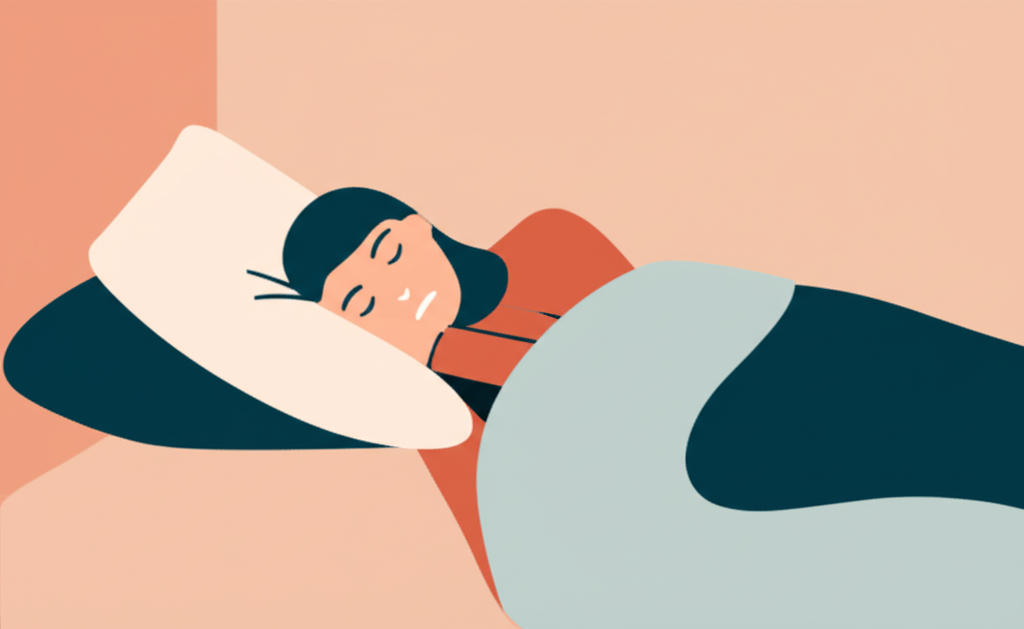
Can Magnesium Help Sleep?
Magnesium is an essential mineral involved in hundreds of bodily processes, and one of its lesser-known roles is its potential to improve sleep quality. Many people struggle with insomnia or other sleep disorders, and the search for natural solutions is constantly ongoing. Could magnesium be the answer for you?
This blog post will explore the connection between magnesium and sleep, examining the scientific evidence, potential benefits, and how to incorporate magnesium into your routine safely and effectively. We'll also discuss potential side effects and who might benefit most from magnesium supplementation.
How Magnesium Affects Sleep
Magnesium plays a crucial role in regulating the nervous system. It helps to calm the nerves and relax muscles, which are essential factors in falling asleep and staying asleep. Specifically, magnesium:
- Reduces stress and anxiety: High levels of stress and anxiety are major contributors to sleep problems. Magnesium's calming effects can help alleviate these feelings, making it easier to unwind before bed.
- Improves melatonin production: Melatonin is a hormone that regulates the sleep-wake cycle. Magnesium is needed for the production of melatonin, so adequate magnesium levels can support healthy melatonin production.
- Relaxes muscles: Muscle tension is often a symptom of anxiety and stress, leading to restless sleep. Magnesium can help relax tense muscles, promoting more restful sleep.
- Regulates GABA: Gamma-aminobutyric acid (GABA) is a neurotransmitter that inhibits nerve impulses, promoting relaxation and sleepiness. Magnesium plays a vital role in GABA's function.
These mechanisms suggest a strong link between magnesium and sleep quality. However, it's essential to understand that the effectiveness of magnesium for sleep varies from person to person.
Scientific Evidence
While many anecdotal reports suggest a positive effect of magnesium on sleep, scientific evidence is still emerging. Several studies have shown that magnesium supplementation can improve sleep quality in certain populations, particularly those with:
- Insomnia: Studies have shown that individuals with insomnia may experience improvements in sleep parameters, such as sleep latency (time to fall asleep) and sleep efficiency (percentage of time spent asleep), after taking magnesium supplements.
- Restless legs syndrome (RLS): Magnesium deficiency is often linked to RLS. Supplementing with magnesium has shown promising results in alleviating RLS symptoms and improving sleep.
- Sleep disorders related to stress and anxiety: As magnesium has calming effects, it may be beneficial for individuals whose sleep is disrupted by stress and anxiety.
However, more large-scale, randomized controlled trials are needed to confirm these findings and establish clear guidelines on the optimal dosage and form of magnesium for sleep improvement.
How to Use Magnesium for Sleep
There are several ways to increase your magnesium intake:
- Dietary sources: Foods rich in magnesium include dark leafy greens (spinach, kale), nuts (almonds, cashews), seeds (pumpkin, sunflower), legumes (beans, lentils), and whole grains.
- Supplements: Magnesium supplements come in various forms, including magnesium citrate, magnesium glycinate, and magnesium oxide. It's crucial to choose a high-quality supplement and follow the recommended dosage. Always consult your doctor before starting any new supplement, especially if you have underlying health conditions or are taking other medications.
- Topical magnesium: Magnesium oil or lotions can be applied topically to the skin. This method can be effective for some people but requires further research to confirm its efficacy for sleep improvement. Ensure you choose a high quality product free from synthetic additives
It's essential to note that different forms of magnesium have varying absorption rates and potential side effects. For example, magnesium citrate is known to have a laxative effect, particularly at higher doses. Magnesium glycinate is often considered more easily absorbed and less likely to cause digestive upset.
Potential Side Effects
While magnesium is generally safe, consuming excessive amounts can lead to side effects, such as diarrhea, nausea, and abdominal cramps. It's crucial to follow the recommended dosage and consult your doctor if you experience any adverse effects. People with kidney problems should exercise extra caution when using magnesium supplements, as they may struggle to excrete excess magnesium.
Who Should Consider Magnesium for Sleep?
Individuals who experience sleep disturbances, particularly those linked to stress, anxiety, or muscle tension, may benefit from magnesium supplementation. Those with insomnia, restless legs syndrome, or other sleep disorders may also find relief through magnesium. However, it's essential to consult your healthcare provider before starting magnesium supplementation, especially if you are taking medications or have pre-existing health conditions. A doctor can help determine if magnesium is suitable for you and recommend the appropriate dosage.
Conclusion
Magnesium's role in regulating the nervous system and its impact on various bodily functions that affect sleep makes it a promising natural remedy for sleep problems. While more research is needed to confirm its effectiveness in all individuals, the existing evidence suggests that magnesium may improve sleep quality for many people. Incorporating magnesium-rich foods into your diet and considering supplementation under the guidance of a healthcare professional could be beneficial for improving your sleep and overall well-being.
Remember to consult your doctor or a registered dietitian before making significant dietary or supplement changes, especially if you have any health concerns.
Hashtags:#magnesium #sleep #insomnia #anxiety #stress #melatonin #musclerelaxation #GABA #supplements #health #wellbeing #sleepdisorders #naturalremedies #magnesiumglycinate #magnesiumcitrate Labels: magnesium,sleep,insomnia,anxiety,stress,melatonin,muscle relaxation,GABA,supplements,health,wellbeing,sleep disorders,natural remedies,magnesium glycinate,magnesium citrate Labels:magnesium,sleep,insomnia,anxiety,stress,melatonin,muscle relaxation,GABA,supplements,health,wellbeing,sleep disorders,natural remedies,magnesium glycinate,magnesium citrate
No comments:
Post a Comment